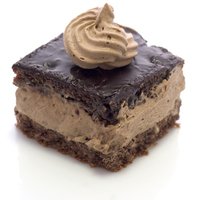
Stop emotional eating tips – Chocolate stimulate the production of happy hormone dopamine
We all have these days when nothing goes our way: client is not happy, date is cancelled, weather is grey, hormones are playing up and it leaves you feeling low, deprived, restless. But there is a glimmer on the horizon: the glimmer of the biscuit tin, the chocolate wrapper and of course, the delights in the fridge…..
Tucking in to chocolate, ice cream, biscuits, cheese and maybe even wine, seems to be the right thing to do, to make you feel better.
This type of eating is called emotional eating: using food as a way to move away from the difficult emotions and trying to replace it with the food that we are programmed to see as rewarding and a treat. The sad thing is that it doesn’t make you feel better, it makes you feel worse.
What to do when you are an emotional eater? Follow these steps to make a change.
1. Acknowledge you are an emotional eater. Just state it as a fact, without judging yourself or beating yourself up. Get a mirror, smile into it and say: ‘I am an emotional eater. I use food to walk away from difficult emotions.’
2. Accept you are an emotional eater and accept that you have created habitual behaviour, where you almost subconsciously, go for food to make yourself feel better. It is not bad, it is not good, it is just something that you do at this moment in time, but it will change if you want to change.
3. Stop, think and feel. To start making changes, become aware of what goes on when you eat. So every time you eat, stop, think and feel. It could be helpful to write it down. What are your thoughts and feelings? Why are you eating?
4. Decide on the next step. If you are eating because you are hungry, you are eating out of natural survival instinct. If you are eating because there is an emotional urge, you are eating out of emotional upset. Once you know your feelings, you have a choice. You can carry on eating or you can decide not to eat, which is relevant if you are eating out of restlessness, unhappiness or stress.
5. Find an alternative activity. If you decided not to continue your emotional eating, walk away from the temptation, maybe go outside, call a friend, drink a big glass of water or do all three.
6. Look into your difficult emotions. Spend some time feeling those feelings and tell yourself it is okay to feel like that. Maybe write them down or talk it through with your partner or a coach.
7. Congratulate yourself. If you have gone through these steps, congratulate yourself on having made a start to change your emotional eating habits. It won’t change overnight; after all, it did not start overnight either. But the fact you have chosen to change is a positive and important step.
If you want to take it further, why not book a confidential FREE Clarity Call to see how I can help you. With a history of 20+ years of emotional eating, I might be in a good position to help you.

